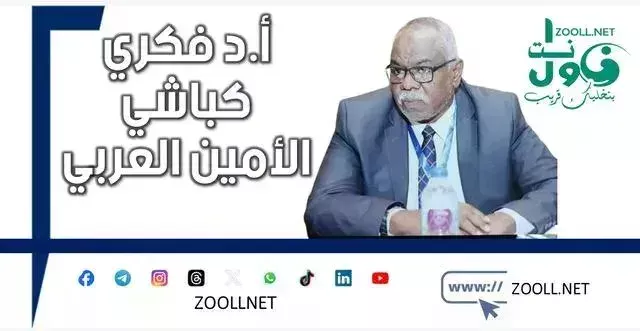The importance of the role of universities and professors in the reconstruction phase after the end of the war ✍️ Professor: Fikri Kabbashi, Al-Amin Al-Arabi

This cursed war, which led to the destruction of infrastructure and many service facilities, affects the lives of all citizens, and we pray to God to bless our country by preserving security, safety, stability and peace, and once the crisis has subsided. and this cursed war is over, the results of which we should benefit from as a hard and bitter experience for which all Sudanese have paid the price, so I believe that this is a good opportunity for the coming change to be real and fundamental. and can be harmful and beneficial. Perhaps this cursed war will be a turning point in the history of the Sudanese people, which will be followed by reconstruction and achieving a comprehensive renaissance, as I believe, one of the most important results of this cursed war. The war is the agitation of the silent majority. Those who sat on the sidewalk were unaffiliated Sudanese academics, professionals and experts, especially professors from universities and all higher education institutions. But what I fear, based on my observations, is that the same previous experience in the dialogue of the deaf will be repeated due to the practice of high selectivity, deliberate exclusion, monopolization of the dialogue in a narrow circle and the repetition of what resulted from it. in a distorted manner, represented by the defective and perforated constitutional document. It is useless if one does not take advantage of the bitter experience and the bloodshed it left behind and to which the loss of joys, lives and property applies. us: Stupidity is doing the same thing twice in the same way and with the same steps and expecting different results, as if you, O Most High, had never conquered.
He made it clear to everyone, with insight and wisdom, that Sudan, in its current situation, lacks creative national leaders, devoid of self-interest and self-esteem. I believe that one of the most important reasons for this is the exclusion of universities. and higher education institutions from the scene, while UNESCO and all developed or developing countries. For advancement, it was agreed that universities have three important objectives, which are (teaching, scientific research and community service), and therefore universities are considered the main institutions in the processes of change, given the subject of higher education and scientific research. Perhaps one of the most important, clear and striking paradoxes is that the consciousness of the Sudanese people is greater than that of those who have appointed themselves as leaders. Therefore, there is a huge difference in the level of political discourse, as well as in the behavior of ordinary citizens who do not belong to political parties. The escalation and successive and continuous tensions that have resulted in this cursed war, the price of which has generally been paid by the people, which can lead to the collapse of the transitional regime and perhaps its complete collapse. the collapse of the state and its fragmentation before reaching the stage of elections, and then there is no point in crying over spilt milk. I believe that honest national forces that believe in the problems of the people should move away from personal gain, led by the members of the faculty. in Sudan. they are aware of it or not…
It is very important to note that the mere announcement of a government of technocrats is not the final goal after which happiness will flow and economic crises will disappear, but rather it must be preceded by concrete plans for investment programs and projects aimed at exploiting available resources by attracting external funding and foreign capital. Sudan is characterized by unprecedented wealth, whether it is cultural, social and ethnic diversity or the multiplicity of resources, both material and human, and all the components of the renaissance, including the distinguished geographical location, I believe. that in the absence of a comprehensive national plan, even if the government is formed of technocrats, the situation will not change unless what is specifically requested of the ministers is determined. They must accomplish it, and then set criteria for selecting officials in order to do so. determine who is appropriate for each specialty. The past transition period was characterized by chaos and confusion, and the result was a cursed war that destroyed everything that was green and dry. The situation went from bad to worse, and this was clear to everyone. It is wise that Sudan, in its current state, lacks national leaders, creative and creative women, devoid of self-esteem and self-love, and as I mentioned before, I believe that one of the most important reasons for this is exclusion. Universities and higher education institutions are considered major institutions in the processes of change, development, growth and progress, and universities and higher education institutions are the most capable and worthy of fulfilling this important role. They have resources, infrastructure and infrastructure. includes within it national cadres and skills with distinguished expertise recognized at the world level, as well as in the perspective of Alba studies, scientific research, development and cultural and industrial changes, which are based on scientific research and the great capacity to exploit its results in the development of the overall strategic plan for the State of Sudan. It goes without saying that you do not have a plan as a country to exploit the material resources available in the ground, such as mineral and water reserves, and on the surface. of the Earth, including flat agricultural lands, rivers flowing with fresh water, huge amounts of rainwater and human resources distinguished as a workforce represented in the annual results of universities in specializations. Different countries will inevitably be part of the strategic plans of different countries. countries less prestigious than yours, and these may be small states devoid of history and civilizational and cultural dimensions.






